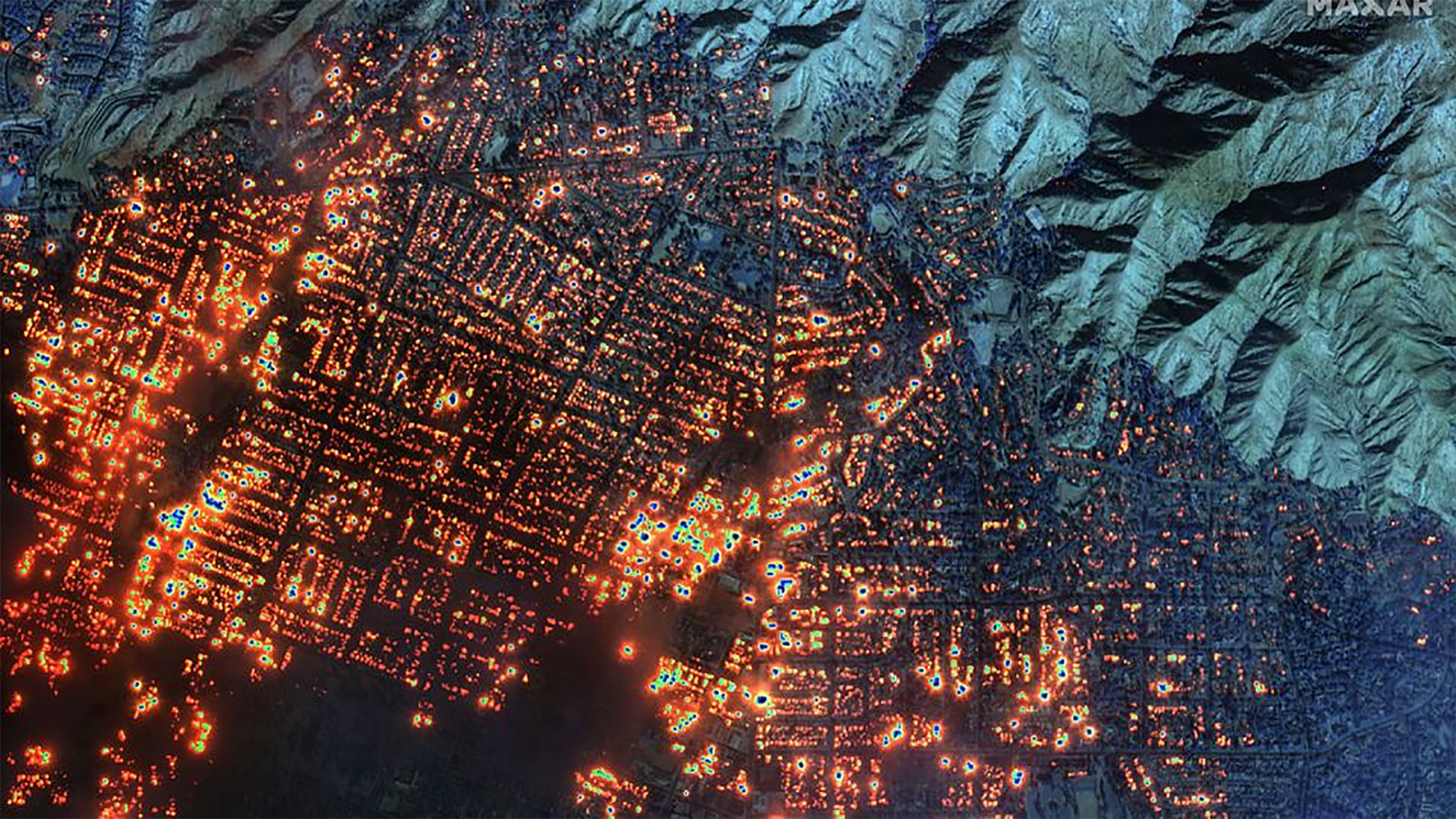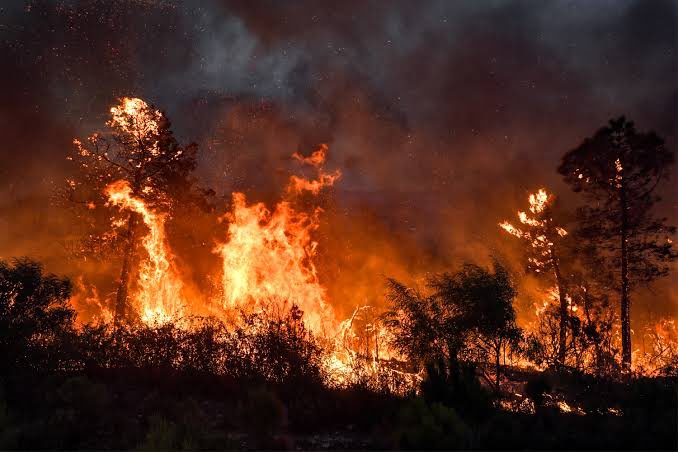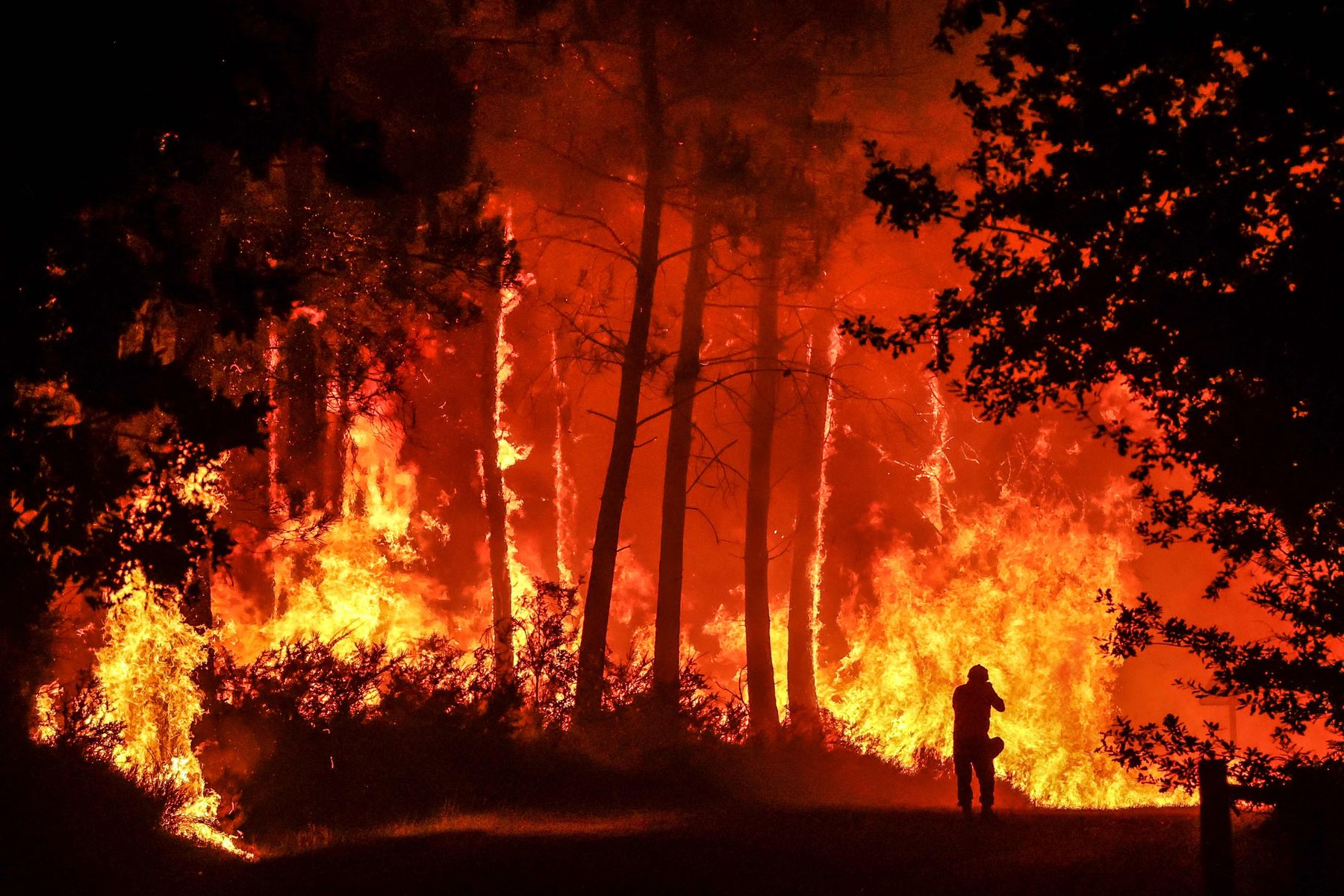Pyrocene: We dive into the Fire Age
- Fire occupies more and more space in the news. In recent years, many fires have won us the game all over the planet. Current fires are not like existing fires, they are more aggressive and they are profoundly changing the planet: They have placed us at the gates of a time that we could call pyrocene. Fires are replacing man in the role of the sculptor of landscapes.

[The author posted this article on the Conversation website and we brought it with the Creative Commons license]
The following explains what has changed, the extent to which current fires affect the Earth and how the situation can be revolutionized. But before we have to remember that this was not always the case, that until recently we were able to control the fire. Fire was our main ally.
The domestication of fire
The domestication of fire was fundamental for our species, both in its evolution and in the development of modern societies.
Along with the conquest of fire, one of the first technologies developed by man was that of fire. With fire control came landscape management and we learned to cook. Thus, nutritional values of foods increased and decreased digestion time and health problems. The possibility of cooking increased the size of our brain and therefore our ability to reason.
If we fast-forward the clock of history, we encounter the industrial revolution, which was a fire revolution. We learned to control the flames to extract energy from combustion, and we invented many machines, motors, tools and types of artifacts that made existence easier for us.
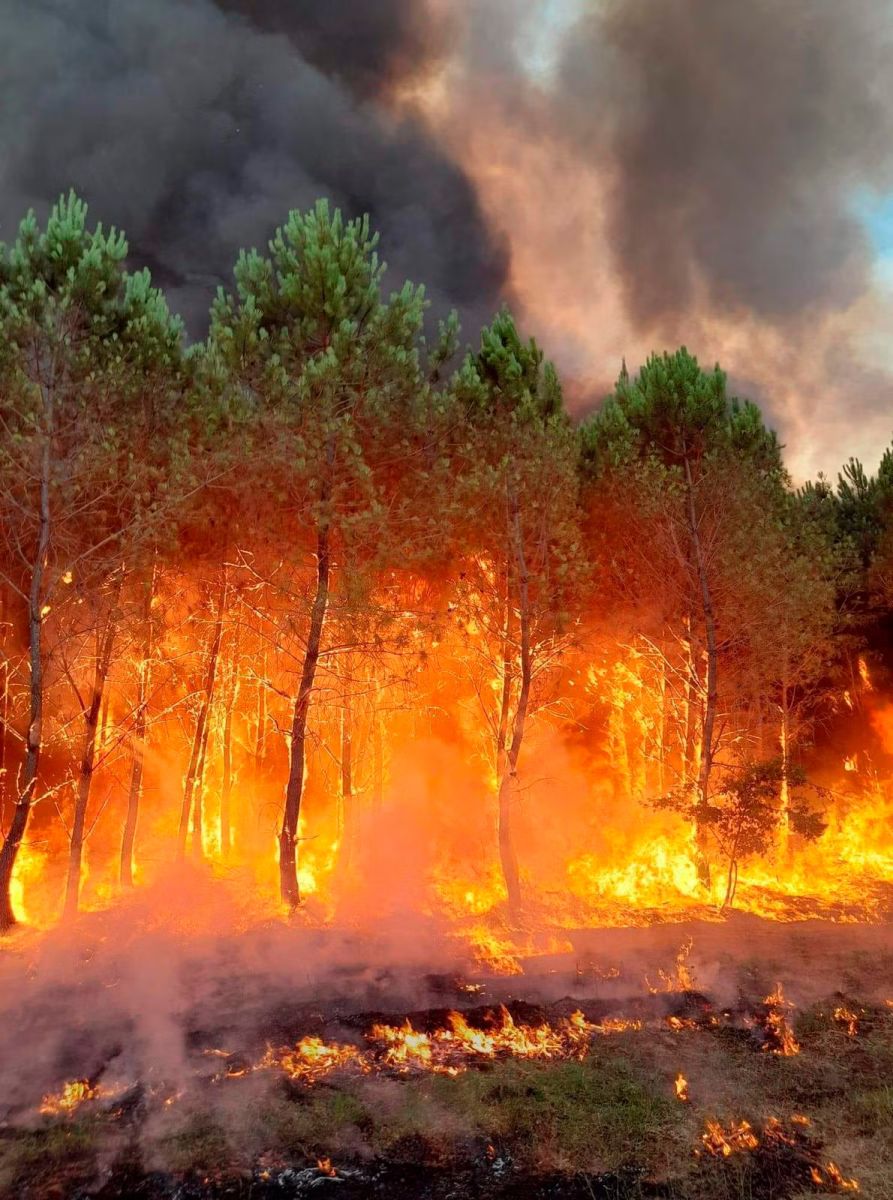
Pyrocene: lack of control over
fire But in the industrial revolution we changed fuel. The fires in the industries were not fed by living, vegetable fuels, but by fossil and lithic fuels.
The combustion of fossil landscapes changed the atmosphere and we started warming the climate. The abandonment of the mountains changed the physiognomy of the earth and is now accumulating biomass. More heat and more fuel: more firewood.
And today's fires are not under our control. We've been dominating flames for decades. The decline in the area burned in forests was due to the development of new fire-fighting strategies, improved training and a significant increase in the spending of the means of extinction. But all of this has been broken now.
Everything points to the fact that we are at a turning point. Since the conquest of fire, perhaps for the first time we are losing control. Forest fires are increasingly escaping and in their control we are taking steps backwards, now the fire conquers us.
The dominion of fire allowed the Age of Man, the Anthropocene. The loss of control leads us to the Pyrocene, the Fire Age. At this time it will be the fire and not the azada, the main modeler of our landscapes.
The power of new
fires is enormous. The fires of gigas that occurred three years ago in south-east Australia engulfed 21 per cent of the forests, increased the ozone hole and cooled the climate. This was because the particles suspended in the smoke column, aerosols, blocked the entrance of solar rays. The destruction of the ozone layer changed atmospheric currents. However, these conclusions were transitory and lasted for a few months.
Aerosols eventually fell to the ground, much of the Antarctic Ocean, causing excessive algae growth. Aerosols contain micronutrients, such as iron or nitrogen, essential for phytoplankton. So the Australian fires reclaimed the Antarctic Ocean.
In addition to its effects on the planet, wildfires like Australians have a major impact on health, economy and education.
But this isn't just happening in Australia. Similar processes are taking place in many parts of the world on the Atlantic and Pacific coast. And yes, it is true that there have always been catastrophic fires beyond our control, but today we are constantly living.
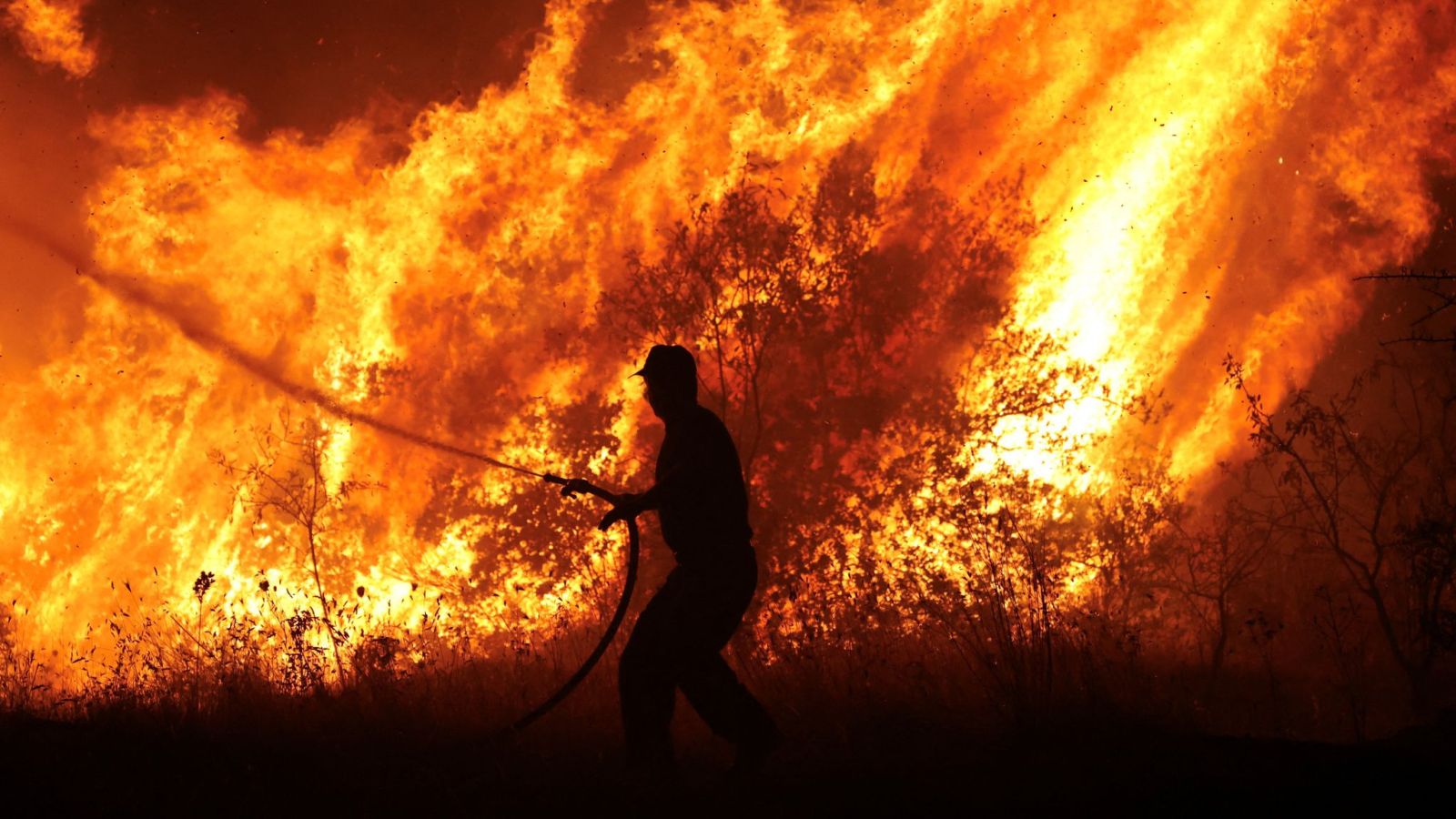
We still have the opportunity to move away from
the path of Pyrocene in the domestication of new fires. The European Green Pact and the necessary energy and ecological transition have given us a framework for developing effective policies to curb the Pyrocene. In addition, science and engineering provide concrete suggestions and guidelines to achieve this:
• Support for extensive livestock farming. Promoting and supporting the burning of pastures and advising pastors in their realization. Grazing is a great ally to break the fuel continuity, reduce the intensity of the fire and allow its extinction.
• Recreation of the natural dynamics of fire. It involves the introduction of technical fire by low-intensity burns. These are harmless burns, engineering works based on ecological principles.
• Development of green firewall. The outskirts of urban areas should have large swathes without large vegetation. But trees can be preserved, if preferred, by implementing certain irrigation systems. They are sprinklers mounted on cranes that moisten vegetation with purified water and stop the spread of fire.
• Reduction of forest forest. It means cutting trees and improving their health. Logging trees is not deforestation. On the contrary, the permanent felling of trees, reducing the amount of fuel, is a great shield to protect against fire that will squeeze the mountains.
• Strengthen agricultural activity. Crops are the most effective fire-fighting brake. Abandonment of the countryside is not something of the past, it continues to increase in disproportionate rates. It's paradoxical, because we keep eating every day. We therefore need a primary sector.
We are seeing the first results of having abandoned rural areas without human beings. During anthropocene, over the past 12,000 years, humans have lived and exploited 90 percent of tropical and Mediterranean and temperate forests. But the recent abandonment of the mountain and the concentration of life in cities is fuelling the flames of the Pyrocene.
We need living, livable landscapes. This is the only way that fire does not occupy the ecological space that man leaves free when he leaves the mountain.
Apparently, the fire originated on 13 July in Errenteria's home originated in the battery of an electric scooter. On this occasion, and fortunately, there was only material damage. However, don’t think this accident is an unusual thing, lately, firefighters are busy with this... [+]
One of the first violets has been the arrival of the mountain fires, persecuted by their excess. And then the protests, including the ones I usually bring to this journal.
Two years ago it was terrible. The fires spread throughout Lapurdi, Navarra and Gipuzkoa, from Mount... [+]









-(1).jpg)
